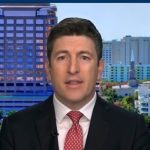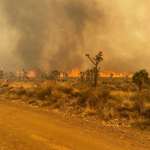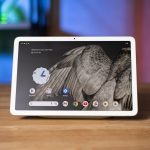
Amazon founder Jeff Bezos has questioned raised the possibility of Chinese influence after fellow billionaire and Tesla CEO Elon Musk confirmed his $61 billion purchase of Twitter.
Mr Bezos – the world’s second richest man – responded to a tweet from a New York Times journalist outlining links between Mr Musk and China.
It noted that China was Tesla’s second-biggest market in 2021, and that Chinese battery makers are major suppliers for Tesla. China banned Twitter in 2009.
“Interesting question. Did the Chinese government just gain a bit of leverage over the town square?” Mr Bezos wrote.
Mr Musk, the chief executive of electric car maker Tesla and aerospace company SpaceX, clinched a deal to buy Twitter for $US44 billion ($A61 billion) cash early on Tuesday (Australian time). The sale will shift control of the social media platform populated by millions of users and global leaders to the world’s richest person.
It is a seminal moment for the 16-year-old company, which emerged as one of the world’s most influential public squares and now faces a string of challenges.
Mr Musk has criticised Twitter’s moderation, calling himself a free-speech absolutist, said that Twitter’s algorithm for prioritising tweets should be public, and has criticised giving too much power on the service to corporations that advertise.
Political activists expect a Musk regime will mean less moderation and reinstatement of banned individuals, including former US president Donald Trump.
Mr Trump, however, told Fox News on Tuesday that he would not return – preferring his own Truth Social network.
“We’re taking in millions of people and what we’re what we’re finding is that the response on Truth is much better than being on Twitter,” he told Fox.
“Twitter has bots and fake accounts.”
Mr Trump’s potential return was one of the issues raised at an “all-hands meeting” of Twitter staff with chief executive Parag Agrawal and board chair Bret Taylor on Tuesday.
Mr Agrawal, who has been in charge of Twitter for just four months, told employees not to expect big changes before the deal is finalised – expected before the end of 2022.
“Once the deal closes, we don’t know which direction the platform will go,” he said.
Mr Musk has already described user-friendly tweaks to the service, such as an edit button and defeating “spam bots” that send overwhelming amounts of unwanted tweets.
Discussions over the deal accelerated at the weekend after Mr Musk wooed Twitter shareholders with financing details of his offer.
Under pressure, Twitter started negotiating with Mr Musk to buy the company at his proposed $US54.20 per share price.
“Free speech is the bedrock of a functioning democracy, and Twitter is the digital town square where matters vital to the future of humanity are debated,” Mr Musk said in a statement.
Twitter shares rose 5.7 per cent on Monday to close at $US51.70. The deal represents a near 40 per cent premium to the closing price the day before Mr Musk disclosed he had bought a more than 9 per cent stake.
Even so, the offer is well below the $US70 range where Twitter was trading last year.
Mr Musk’s move continues a tradition of billionaires’ buying control of influential media platforms, including Mr Bezos’ 2013 acquisition of the Washington Post.
Twitter said Mr Musk secured $US25.5 billion of debt and margin loan financing and was providing a $US21 billion equity commitment.
Mr Musk, who is worth $US268 billion, according to Forbes, has said he is not primarily concerned with the economics of Twitter, but with having a public platform that is “maximally trusted and broadly inclusive”, which is “extremely important to the future of civilisation”.
However, it is not clear how much time Mr Musk will devote to Twitter or what he will do. He has 84 million followers on his own Twitter account.
The Twitter transaction was approved by the company’s board and is subject to a shareholder vote. No regulatory hurdles were expected, analysts said.
Daniel Ives, an analyst at Wedbush, said the company’s board had its back “against the wall” once Mr Musk detailed his financing package and no other bidders emerged.
Although it is only about a 10th of the size of social media platforms such as Facebook, Twitter has been credited with helping spawn the Arab Spring uprising and accused of playing a role in the January 6, 2021, storming of the US Capitol.
After Twitter banned Mr Trump amid concerns around incitement of violence following the US Capitol attack by his supporters, Mr Musk tweeted: “A lot of people are going to be super unhappy with West Coast high tech as the de facto arbiter of free speech.”
The White House declined to comment on the deal, but said President Joe Biden had long been concerned about the power of social media platforms to spread misinformation.
In Britain, MP Julian Knight, who chairs the country’s digital, culture, media and sport committee, called the deal an “extraordinary development in the world of social media”.
“It will be interesting to see how a privately owned Twitter (run by a man who is an absolutist over free speech) will react to global moves to regulate,” he tweeted.
-with AAP
The post China, Trump and Bezos – unravelling the mystery of Elon Musks’ Twitter plans appeared first on The New Daily.
Powered by WPeMatico






